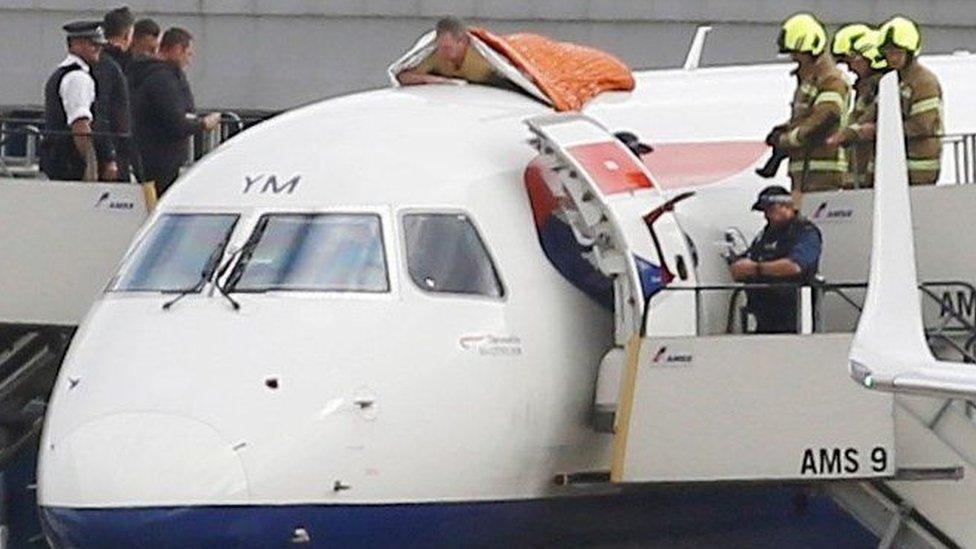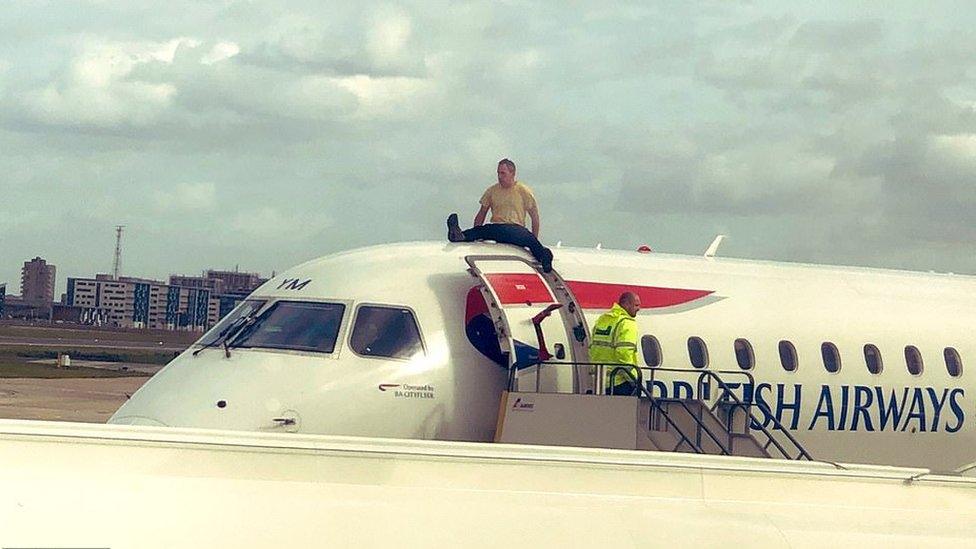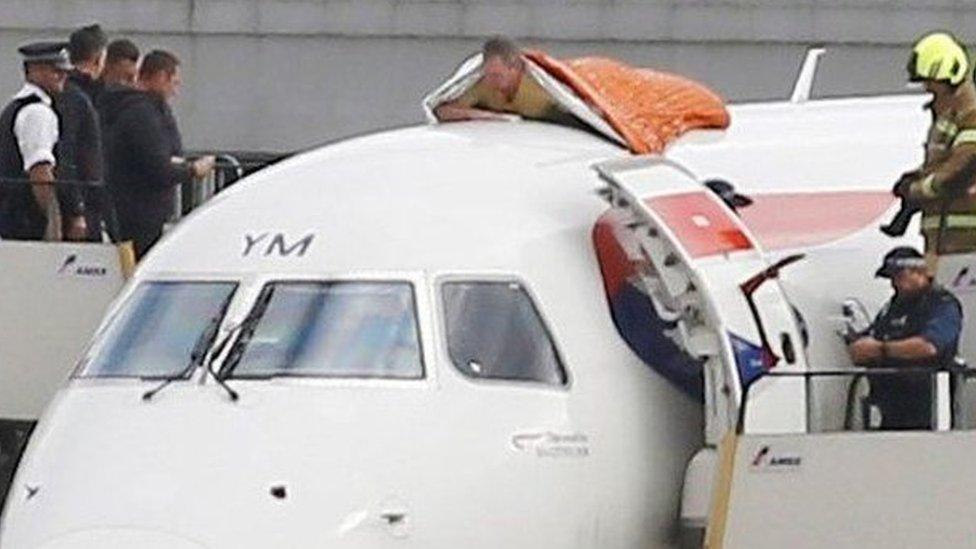Extinction Rebellion: Plane glue stunt Paralympian has jail term cut
- Published

James Brown, who is visually impaired, climbed on to the British Airways plane at London City Airport in 2019
A former Paralympian who was jailed for gluing himself to the roof of a plane during an Extinction Rebellion protest has had his sentence reduced.
James Brown, who is visually impaired, glued his hand to a British Airways plane at London City Airport in 2019.
The 57-year-old was jailed for causing a public nuisance last year but took his case to the Court of Appeal.
The judges cut his 12-month jail sentence to four months but dismissed the appeal against his conviction.

James Brown glued his hand to a British Airways plane in October 2019
In December, lawyers representing Brown, told the Court of Appeal there had been "no reason" to charge him with causing a public nuisance and questioned the "proportionality" of the decision to bring the charge.
They also argued that his sentence was "manifestly disproportionate" and said he was suffering "unique hardship" in prison because of his disability.
When passing the original sentence judge Gregory Perrins, said Brown, who has been registered blind since birth, had "cynically used" his disability and put his "own life at risk" to carry out the stunt.
On 10 October 2019 the double gold medallist, from Exeter, had climbed on to the plane, which was destined for Amsterdam, before gluing his right hand to the aircraft.
Northern Ireland-born Brown, who represented Great Britain in cycling and athletics before going on to represent Ireland in cross-country skiing, livestreamed the protest until he was removed after an hour.

Brown said he was suffering "unique hardship" in prison because of his disability
Southwark Crown Court heard a total of 337 passengers had their flights cancelled as a result, with some missing birthday celebrations, business meetings and family events. The disruption also cost the airline about £40,000.
Brown, who represented himself at his trial, denied one count of causing a public nuisance, claiming he had "to do something spectacular" to draw attention to the climate crisis.
Three appeal judges, Lord Burnett - the Lord Chief Justice, Lord Justice Singh and Mr Justice Goss, considered the case.
In a written ruling Lord Burnett said people who caused major disruption at airports ran "a substantial risk" of going to prison and the judges felt Brown's conviction was not "unsafe".
However, he added: "Taking account of all the circumstances, we have concluded that the sentence should be one of four months' imprisonment."
- Published8 December 2021

- Published28 July 2021
